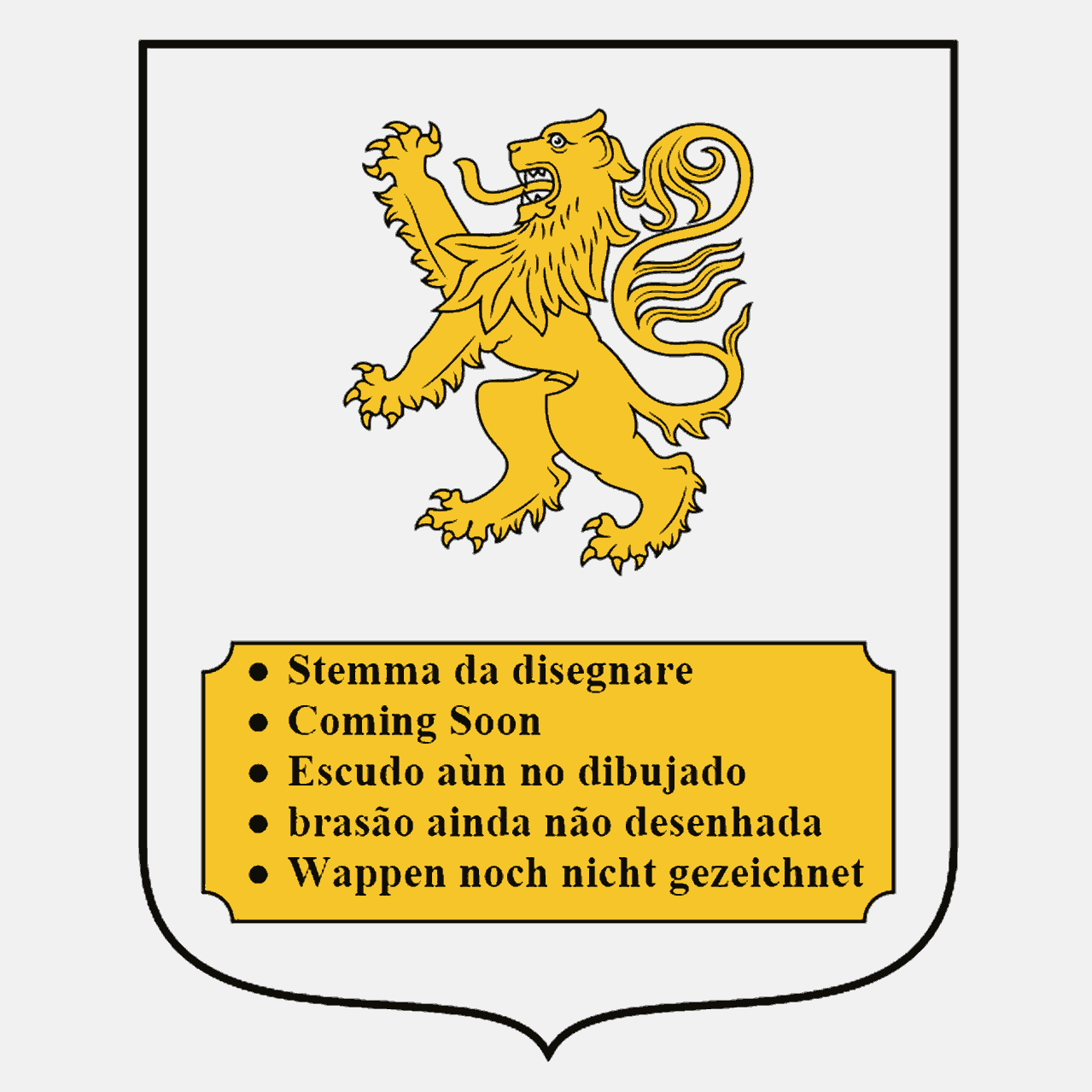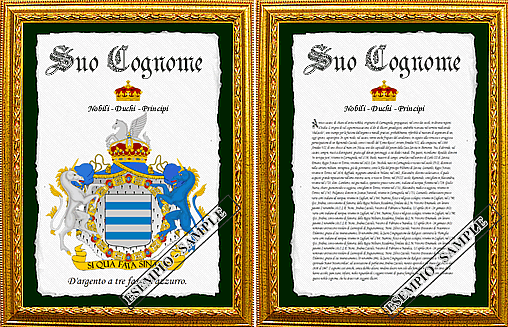
Notice:
A Heraldic Traces is a dossier prepared by an artificial intelligence program useful as a starting point for researchers and passionate heraldists. The presence of a Heraldic Traces indicates that there is information to draft a heraldic document after carrying out a professional thorough search.
You may be interested
Russian, very rare, it is typical of the Agrigentino, Russetti, absolutely very rare, it is of Lecce, Russians would seem specific of the Puglie, while Russo is very widespread in all Italy, Russino has a stump in the Ragusano, one in Gallura and one in Rome, Russolo is typically Veneto, of the area that includes the Trevigiano, the Pordenone and the Venetian, Russotti, decidedly Sicilian, is more than anything else of the Messinese, while Russotto, always Sicilian and much more common is more than anything else Agrigentino, Palermo and Nisseno, Russu is Specific to Gallura, all derive from dialectal nicknames related to the characteristic of hair coloring or the complexion of the ancestor. Traces of this surname are already in 1200, in an act of February 7, 1279 written in Lunigiana is cited a Russian judge with a son notary, it reads in fact: "... Bona fide et sine fraude in omnibus et per omnia, pres. Supr. Iudice, Coram Dom. Russian Iglesias et Francischino not. ° Eius Filio in the Curia... ". In 1400 in Naples we find a notary Francesco Russo, in the SIXTEENTH century, in Sicily, at Militello is a friar Bernardo Russo, a Franciscan scholar who taught in the main chairs of the order, being appreciated for the suevaste knowledge. Additions provided by Alessandro Russi There is a friulan strain of the surname Russi which was originally Rusig, then italianized during the twenty years in Russi, is present mainly in the Isontina part of the Venezia Giulia in the so-called Bisiacaria and in Particular in the villages of Pieris and Begliano of the commune of San Canzian D'isonzo (oral sources of the family attest to its presence for at least 200 years), of almost certain Hungarian origin. Additions provided by Stefano Ferrazzi on the origin of these surnames converge at least three hypotheses, which, summed up to each other, justify the spread in the whole country (the only Russian, for example, is the second most popular surname of Italy). According to the most accredited hypothesis, first, the names Russian, Russian, Russian, etc derive from the nickname or medieval Russian name, which, along with the red variant, probably alludes to hair color (following the example of names such as Bruno, Fosco, Fulvio, Moro, Nero, etc): the characteristic of the red colouring, in fact, seems to be very common at one time, even if, over the centuries, it has been considerably decreasing (statistically, this phenomenon has occurred as much in Italy as in the whole world) ; In the context of medieval culture, it should be recalled that the red colouring of the hair was a source of superstition and prejudice, according to the pseudo-religious reasoning that survived for many centuries to come (in this sense, it is unforgettable the Novella Verghiana Red Malpelo, typical example of stigmatization of red hair). Turning now to the second hypothesis, it should be noted that, in several cases, these surnames arise from an adaptation of the Germanic staff Rotz or Rutz, which, composed of the root Hrod (glory, fame), can be translated as glorious, famous (the same root, for example, it Found in names such as Roberto, Rodolfo, Ruggero, Rolando, etc): from the etymological point of view, in fact, the ending-tz is a more modern revival of the suffix-izo, which, in the ancient Germanic onomastics, often assumes a hypochoristic value. The latter hypothesis, however, has a certain ambiguity, if one thinks of the German surnames Ross and Russ: In some cases, in fact, these surnames are approached to the staff Rotz or Rutz (considering the suffix-ss like a softening of the sound-TZ), whereas, In other cases, it is thought that Ross and Russ derive either directly from the Latin russus or from its German counterpart rot (thus returning to the first hypothesis of meaning). For informational purposes, however, it should be added that this Germanic source also applies to several Jewish-askenazi families, whose emigration to Europe, as we know, has also affected our country. Passing to the last hypothesis, finally, it is not excluded that sometimes the names Russian, Russian, etc derive from the ethnic of Russia, used both as a nickname and as a person name (on the model of the many ethnic surnames of origin, such as Albanian, French, Greek, English, Saracen, slave, German, Turkish, etc). Before concluding, however, one last consideration should be added: a bit ' throughout Europe, in fact, there are several surnames that correspond to Italian Russian and its variants, so that all these assumptions often end up mixing and getting confused With each other (it is not excluded, on the other hand, that there are further sources than those proposed).
Buy a heraldic document with your coat of arms
It is possible to do a preliminary research in our archive. About 100,000 heraldic traces, origins of surnames, coat of arms and blazons are available free of charge. Just write the desired last name in the form below and press enter.
Verba Volant, Scripta Manent
